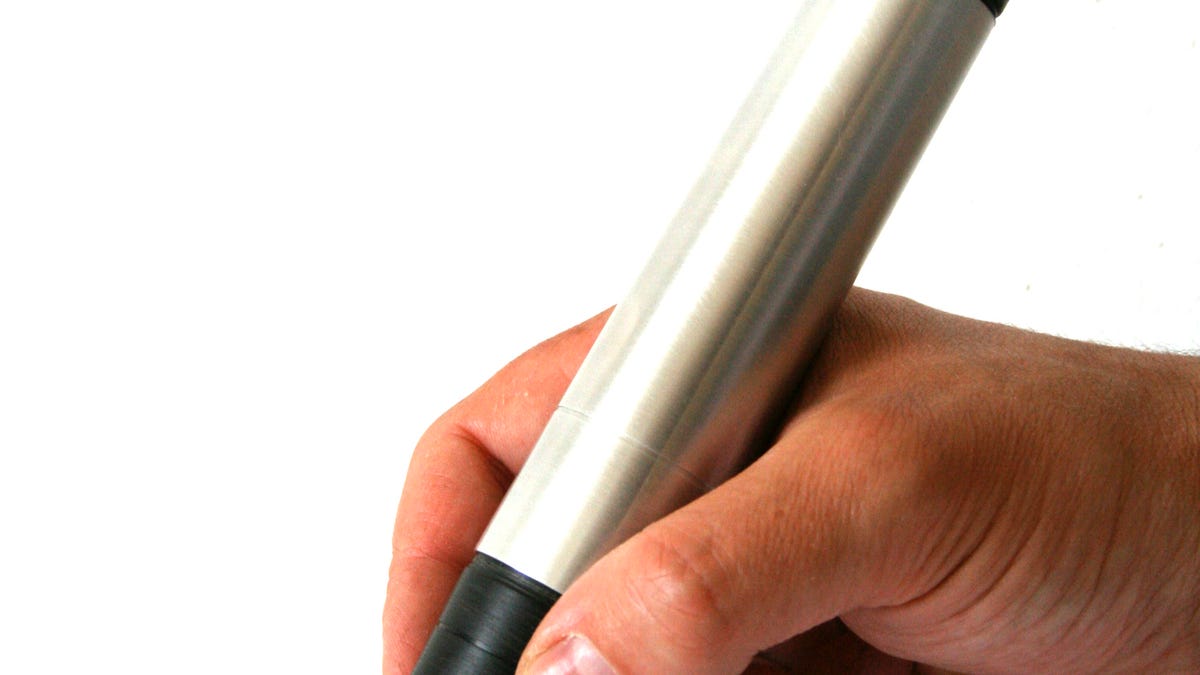Pen designed to measure, and even reduce, stress
A researcher develops a pen he says not only measures the stress levels of those using it, but even lowers the heart rates of its users, too.

A researcher about to receive his Ph.D. has developed a pen that he says not only measures stress, but helps lower the heart rate of the user, too.
The next question, then, is how large the market for such an item might be. Many of us have a pretty good idea when we are stressed, and might not want to be--however subtly--reminded of it.
Miguel Bruns Alonso, a researcher at the Delft University of Technology in the Netherlands, says that because the sensors in the pen are entirely unobtrusive, it would give users "the right feedback" to help them "deal with their stress in a constructive way."
However, the pen's effect on heart rate is slight at best. In his experiment, Bruns found that those who received feedback on their stress levels had a heart rate roughly 5 percent slower than those who received no feedback. Still, those with lower heart rates said they did not feel any less stress.
Bruns says that by using built-in electronics and electromagnets, the pen was able to detect faster, jerkier movements associated with stress, and gradually become more difficult to move around, thereby encouraging users to slow their movements, at which point the pen moves more easily again.
The pen, which certainly looks unwieldy, is little more than a concept at this stage. But it joins a wide range of infomercial-ready gadgets designed to measure stress, including a computer mouse, a bracelet, and yes, a modern spittoon.

